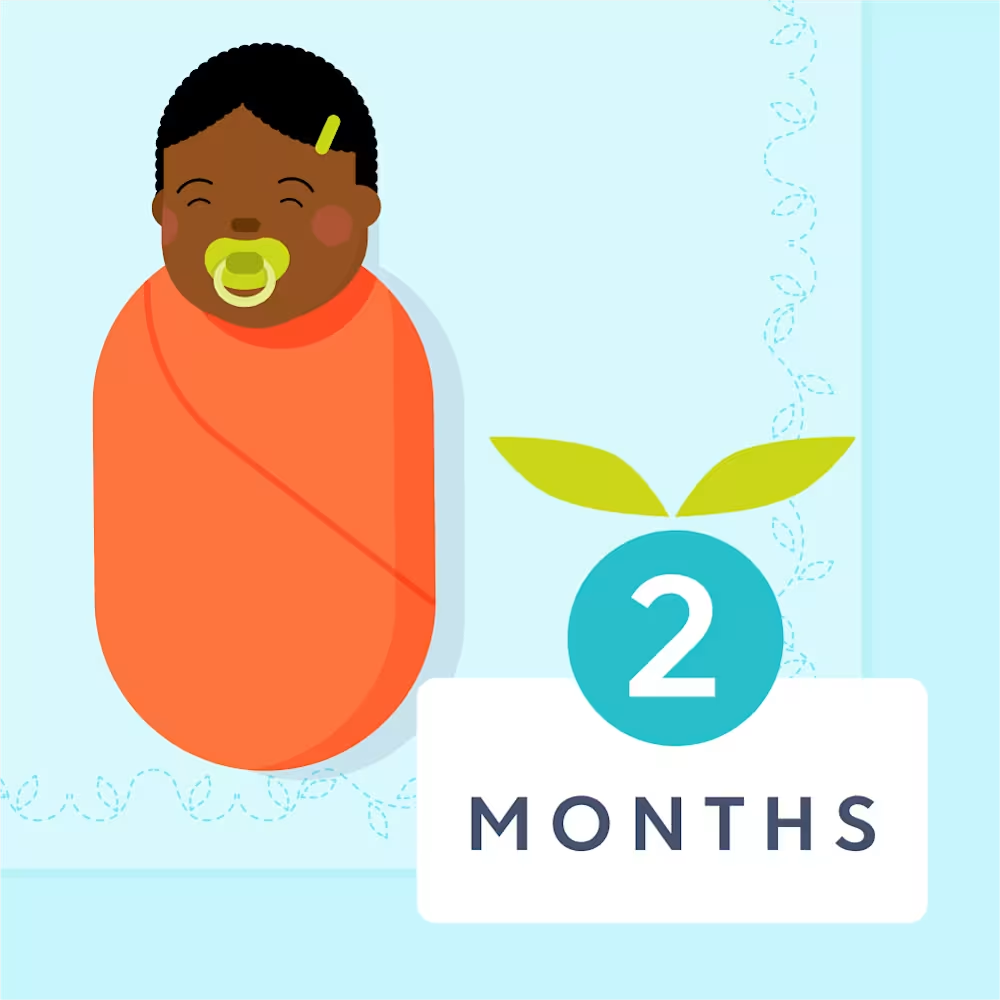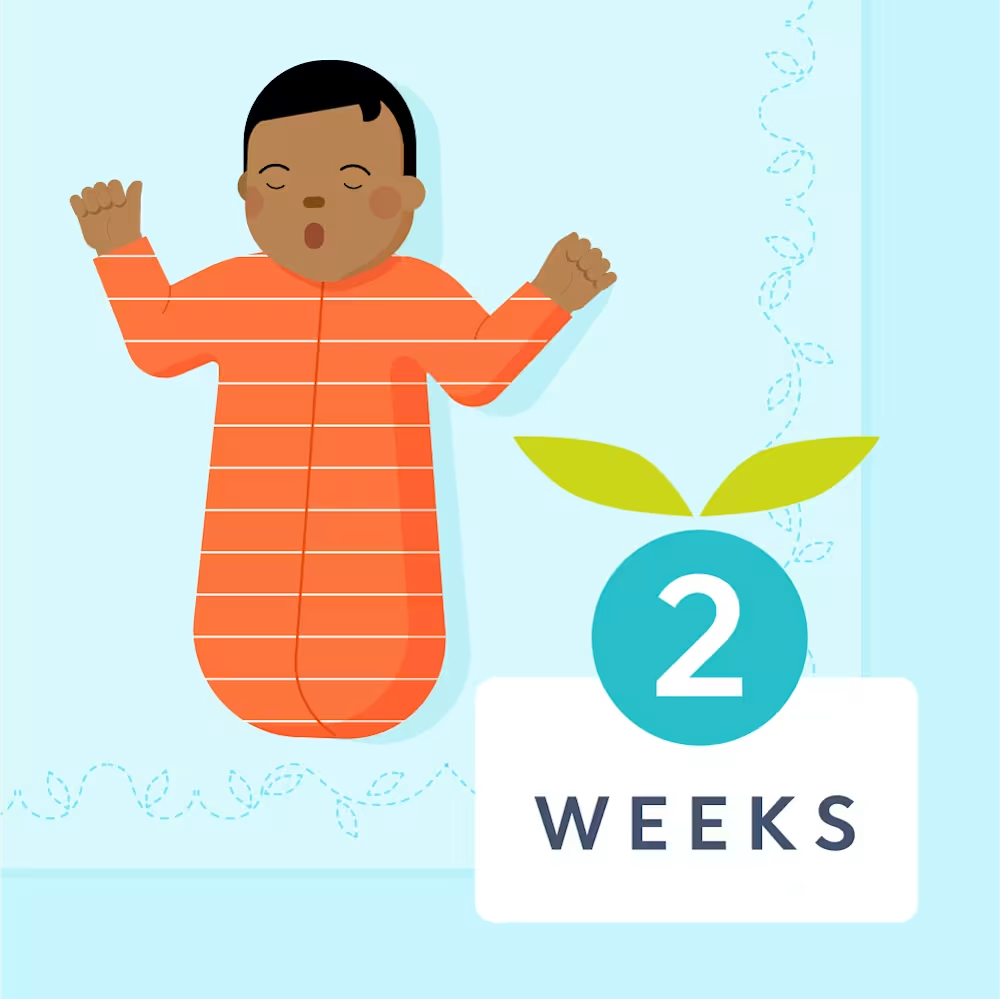Ways to support preemie sleep: Is there a preemie sleep schedule?
Updated Dec 09, 2025

Bringing home a baby who was born early is a huge, exciting milestone. Along with all the joy that accompanies leaving the hospital, there is often some nervousness over helping your little one settle into life outside of the NICU. Like any new parent, you want to do everything “right” that you possibly can!
When it comes to sleep, you may be wondering how to best help your preemie get the rest they need to grow and develop — and eventually get them on an age-appropriate sleep schedule. In this article, we’ll explain how prematurity may impact sleep schedules and give you tips to help the overall goal of ensuring your infant gets the sleep they need.
Do premature babies experience sleep difficulties?
When we talk about sleep development and difficulties for premature babies, we suggest “adjusting for prematurity.” [] This means using your child’s adjusted or “corrected” age, which takes into account the difference between their due date and their actual birth date. Using your child’s corrected age can help you set age-appropriate sleep expectations and ease your mind if your baby isn’t meeting sleep or developmental milestones that are based on their actual age.
To determine your little one’s adjusted age, take their actual age and subtract the number of weeks preterm. For example, if your child is 15 weeks old today but was born 8 weeks early, their adjusted age is 7 weeks. You’ll continue using this formula as your little one grows. You won’t need to use their corrected age for their entire childhood, however, it can help you gauge when they may meet developmental and sleep milestones for the first 2 years of life [].
Preterm babies may have unique sleep challenges, especially in the first months of life. All young babies are expected to wake overnight for feedings and comfort, and there is strong evidence [] that babies born prematurely have increased night waking when compared to children born at term.
It may also take time for your baby to adjust to sleeping outside the NICU. Unless directed by your child’s medical team, always put a baby to sleep on their back [] as this is the safest way for them to sleep. If your infant requires oxygen at home [], they should still be sleeping on their back. Some babies who were born very early may have been sleeping on their front in the hospital, but it’s important to always put them on their back at home — even if sleep is disrupted while they get used to sleeping in a new position.
Note you should not use any type of sleep positioners, rolled-up blankets, or other equipment for your baby’s sleep unless instructed to do so by your child’s medical team.
You may also be tempted to keep your infant awake for longer stretches during the day to promote more overnight sleep or an earlier bedtime, however, we don’t recommend this strategy. Preterm babies can be overstimulated easily and may have less energy than full-term babies [] and require more rest. Additionally, keeping a baby up too long can lead to , which makes it harder for children to fall asleep and stay asleep.
How much should a premature baby sleep?
In general, all newborns sleep most of the time during their first few months of life. Premature babies may sleep 18 hours a day [] during their first few weeks as rest is especially important for energy and growth.
As your preterm baby grows out of newborn sleep patterns and begins to have more of a regular 24-hour cycle of sleeping and eating at around adjusted, it may be possible for them to follow a loose sleep schedule. At this age (and beyond), we recommend structuring their sleep schedule based on their corrected age instead of their actual age. For example, if your baby is 7 months old but was born 8 weeks early, they may more comfortably follow typical 5 month old wake windows and nap/bedtime schedules.
However, every baby is different and it’s often helpful to evaluate their overall mood and energy levels when determining if they’re getting the sleep they need. We also recommend working with your child’s medical team to address any specific medical needs that may impact sleep.
How much should a preterm baby sleep during the day?
The number and length of naps a preterm baby requires will likely be dictated by factors such as age (we use adjusted age for baby’s first year and beyond), degree of prematurity, specific medical needs, and how long they can comfortably stay awake before needing to sleep again.
It’s expected that all babies’ sleep needs will evolve over their first year of life. The unpredictable newborn stage won’t last forever! Babies often settle into more regular sleep patterns around 3 - 4 months (adjusted). From there, as your child grows and can comfortably stay awake for longer periods between naps, they’ll go through various to account for longer awake periods. Longer awake periods mean fewer naps!
Children typically go through over their first three years. However, keep in mind that every child is different and if your infant was born early they may have unique sleep needs and timelines and that’s OK. If you have questions or concerns about your baby’s sleep, reach out to their medical providers.
Is it normal for preemies to sleep all the time?
Preterm babies tend to sleep more than full-term infants []. However, newborn preemie sleep habits typically involve snoozing for shorter periods at a time. It’s not uncommon for babies who are born early to have brief periods of awake time until around 2 months after their due date []. Keep in mind your little one needs lots of rest to grow and develop.
When your baby is ready to interact during their short periods of awake time, look for these signs []:
A relaxed, soft expression
Their arms and legs are relaxed
They appear to be looking at your face and listening to your voice
If you’re concerned about how much your baby is sleeping, we recommend reaching out to their medical team.
Should I sleep train my preemie?
refers to the process of teaching your child how to fall asleep independently, in order to improve sleep. There are a number of when it comes to sleep training, and there’s not a one-size-fits-all approach — for preterm babies or full-term babies and families.
While you may be eager to help your baby fall asleep without your assistance, it’s important to set age-appropriate expectations. We recommend waiting until babies are adjusted (when sleep cycles begin to mature and sleep architecture resembles an adult’s) to begin sleep training and consider that babies of age (also adjusted) may not be developmentally ready to fall asleep completely independently all the time.
It’s important to consider any medical conditions your child may have and consult with their medical team before sleep training.
When will my preemie start sleeping through the night?
Preterm babies may not be physiologically ready to (sleep at least 6 hours uninterrupted without calling out) as early as a full-term baby. If your child was born early, they may not sleep long stretches overnight until 6 - 8 months or later []. There is also strong evidence [] that babies born prematurely have increased night waking when compared to children born at term.
Both full-term and premature newborns spend a lot of their time sleeping though it’s expected that they’ll wake multiple times overnight for feeds and comfort. As your child develops and grows out of newborn sleep patterns, we’ll want to use their adjusted age to determine how much overnight sleep they may need. It’s also helpful to take into account your child’s overall mood and energy levels when gauging if they’re getting enough sleep.
Is there a preemie sleep schedule?
If your infant was born early, you’ll want to use their corrected age when considering and sleep schedules over their first year of life and beyond. In general, awake times will increase as your little one grows and develops more regular sleep patterns. We won’t expect newborn preemies (or full-term babies) to have predictable sleep patterns for the first few months of life, until closer to 3 - 4 months adjusted.
Before a baby is ready for a sleep schedule, it can be helpful to evaluate age-appropriate (adjusted) wake windows for preemies and when determining when your baby may need to sleep during the day. Some premature babies can comfortably stay awake for longer periods and will follow a sleep schedule more based on their actual age (especially as they get older) — or they may thrive with a schedule that’s somewhere in the middle! For this reason, we suggest evaluating your child’s wake windows and overall mood and energy levels instead of following a rigid preemie sleep schedule.
As your infant grows and develops a more predictable pattern for sleeping and eating (usually around 3 - 4 months adjusted), they may have a more consistent earlier bedtime and sleep schedule. However, as your child gets older sleep times can also fluctuate due to and . Keep in mind that you’ll continue using your child’s corrected age as a starting point when navigating sleep schedules and any sleep challenges that arise as your little one grows.
4 ways to support your preemie's sleep
Tip #1: Provide continuous sound
Sleeping in a totally quiet space may be tricky [] for a preterm baby after growing used to the continuous background noise and light in the NICU. Consider using relaxing music, a white noise machine, etc. to help your infant settle for sleep for the first few weeks or months at home — or . There aren’t any definite time limits on when to stop using white noise for children.
Tip #2: Consider swaddling your baby
your baby can help lessen the chance of them startling awake since this is common in preterm babies [] Many NICUs promote swaddling [] as it also helps babies sleep more comfortably on their back. While a baby’s arms are down at their sides in traditional swaddling, swaddling a preemie with their hands near their face can help them calm down and relax too. To do this, swaddle your baby with their arms in a natural position near their face, ensuring the wrap isn’t too tight on their chest and their breathing isn’t obstructed.
Opt for using a cotton or muslin swaddle or wrap to prevent overheating. Also, ensure the swaddle is snug and secure while also allowing for some movement around the legs so the baby can bend their legs at the hips. ? Discontinue using swaddles immediately if your baby is showing any signs of rolling.
Tip #3: Develop a consistent sleep routine
Setting up a with familiar activities can be a great way to help your little one prepare for sleep, even from a very early age. Here are some suggestions for your child’s pre-bedtime activities:
Breast milk or formula
Diaper change
Bath or washing hands and face
Change into pajamas
Swaddle
Snuggles and/or rocking
Bedtime story
Feel free to customize your child’s sleep routine to fit their age and temperament as well as your family’s schedule and preferences. Keeping the routine consistent is important, but it’s also expected that it will evolve as your child grows.
Tip #4: Consider limiting naps to 2 hours
While newborn sleep is precious, it’s also important that pre-term babies get the nutrition they need to grow and thrive. Consider waking your baby after 2 hours during the day so they can feed. Ensuring your child is eating consistently throughout the day may also help reduce night wakings.
Takeaway
Preterm babies need a lot of sleep to grow and develop. Young preemies may sleep 18 hours a day during their first few weeks of life! Premature newborns can be overstimulated easily and may have less energy than full-term babies [] and require more rest.
When considering your preterm infant’s sleep development, it can be beneficial to use their adjusted age (calculated by using the difference between their due date and their birth date) instead of their actual age. However, every baby is different! You’ll also want to consider their medical needs as well as their overall mood and energy levels when evaluating whether they’re getting the sleep they need.
Babies may take some time to adjust to sleeping at home after leaving the hospital. Some ways to help your little one settle in at home include using a white noise machine for sleep, swaddling (if your child isn’t showing signs of rolling), and creating a consistent bedtime routine.
Your preterm baby may be ready for a more regular 24-hour pattern of sleeping and eating by around 3 - 4 months adjusted. You can also expect that your little one’s sleep schedule and sleep requirements will change over time as they can comfortably stay awake longer. Children generally go through four major nap transitions over their first three years!
Share article:
Note: The content on this site is for informational purposes only and should not replace medical advice from your doctor, pediatrician, or medical professional. If you have questions or concerns, you should contact a medical professional.
10 Sources
Share article:





